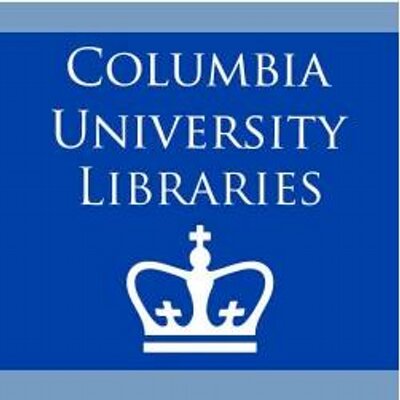
A Revista de Arquitectura está catalogada como uma publicação de acesso aberto. Mais informações >>>
Os autores conservarão os direitos autorais e garantirão à Revista de Arquitectura o direito de primeira publicação da obra, o qual estará simultaneamente sujeito à licença Creative Commons (Atribuição-NãoComercial 4.0 Internacional CC BY-NC).
Os autores assinarão uma licença não exclusiva de distribuição da versão da obra publicada mediante a assinatura do documento RevArq FP03 Autorização para reprodução de artigo.
O autoarquivamento estará de acordo com os critérios expressos pelo SHERPA/RoMEO e pela classificação verde.
Para ver esses lineamentos, por favor, consultar >>>
Resumo
A partir de la gestión integral participativa se orienta el desarrollo espacial de los territorios vistos desde el individuo, para comprender la gestión, acción y ordenamiento territorial, desde la diferencia entre la ciudad entendida como lo que es y el espacio público como objeto de observación. Las vías para recolectar la información fueron la revisión bibliográfica y, a partir de la aplicación de una metodología mixta, se evidenciaron las representaciones vivenciales de los individuos que construyen el saber y el conocimiento a partir del espacio cultural vivido, en donde las experiencias y las prácticas del espacio prevalecen en el desarrollo de un urbanismo participativo. La propuesta se consolida a partir del hacer, el saber y el evaluar, en una trialéctica del ambiente humanizado. Se concluye con los aportes de la propuesta en términos teóricos, prácticos y metodológicos, con el fin de validar una gestión humana participativa en la cual el individuo se vaya convirtiendo en un ser creativo que fomente la calidad de vida y el bienestar social.

Referências
Angarita Arboleda, C. y Amar Amar, J. (2010). Psicología social comunitaria. Enfoques contemporáneos. Barranquilla: Ediciones Uninorte.
Arnold - Cathalifaud, M. (1997). Introducción a las epistemologías sistémico/ constructivistas. Cinta de Moebio (2).
Arnold - Cathalifaud, M. (2003). Fundamentos del constructivismo socio-poiético. Cinta de Moebio (018). Santiago: Universidad de Chile: Facultad de Ciencias Sociales,.
Bailly, A. y Beguin, H. (1992). Introducción a la geografía humana. Barcelona: Fondo Editorial de Masson.
Bailly, A. (2001). Les concepts de la geogrageographie humaine. Paris: Masson.
Berger, P. y Luckmann, T. (2003). La construcción social de la realidad. Buenos Aires: Edición Amorrortu editores.
Fernández Christlieb, P. (1994). Psicología social, intersubjetividad y psicología colectiva. En Montero, M. (coord). Construcción y crítica de la psicología social (pp. 49-107). Barcelona: Anthropos.
Fernández, R. (2006). El tsunami urbanizador español y mundial. Barcelona: La Llevir, S.L. Virus Editorial.
Glasersfeld, E. von (2005). Aspectos del constructivismo radical. En Construcciones de la experiencia humana. Barcelona: Gedisa.
González, S. (2005). La ciudad venezolana. Una interpretación de su espacio y sentido en la convivencia. Caracas: Fundación para la Cultura Urbana.
Hall, E. (2009). La dimensión oculta. México: Siglo XXI Editores.
Jodelet, D. (2004). Vigencia de las representaciones sociales y su incidencia en las prácticas profesionales. Argentina: Educar. Recuperado de http://portal.educ.ar/noticias/entrevistas/dra-denise-jodelet-vigencia-de.php
Jodelet, D. (1984). La representación social: fenómenos, concepto y teorías. Buenos Aires.
Jodelet, D. (2003). Représentations socials: un domaine en expansion, En Jodelet D. (ed.). Les représentations sociales (7 ed.). Paris: PUF.
Korosec-Serfaty, P. (1986). L?Appropiation de l?espace. IAPC-3. Louavin la Nueve: CIACO.
Lindón, A., Aguilar, M. y Hiernaux, D. (2006). Lugares imaginarios en la metrópolis. México: Universidad Autónoma Metropolitana, Unidad Iztapalapha, Antrophos Editorial, Rubí Barcelona.
Lindón, A. (2010). Seminario de investigación: Teoría geográfica contemporánea II. México: Distrito Federal. Universidad Autónoma Metropolitana de Iztapalapha, Licenciatura en Geografía Humana.
Manzanares, J. (2004). El episteme de una civilización inteligente. Teoría del conocimiento trialéctico. La revelación integralista. Mérida: Venezuela.
Martínez-Andrade, D., De Jesús, M., Andrade, R. y Méndez, R. (2007). Cartografía breve del constructivismo en la sociedad del conocimiento. FRONESIS, Revista de Filosofía Jurídica, Social y Política, 14 (2), 1315-6268.
Morin, E. (1990). Introducción al pensamiento complejo. Barcelona: Gedisa.
Nicolescu, B. (2007). La transdisciplinariedad. Manifiesto. Paris: Ediciones Du Rocher.
Nogué, J. y Vicente, J. (2001). Geopolítica, identidad y globalización. Barcelona: Ariel.
Pakman, M. y Shotter, J. (2005). Construcciones de la experiencia humana. El lenguaje y la construcción del sí mismo. Barcelona: Gedisa.
Páramo, P., & Burbano Arroyo, A. (2014). Los usos y la apropiación del espacio público para el fortalecimiento de la democracia. Revista De Arquitectura, 16(1), 6-15. doi:http://dx.doi.org/10.14718/RevArq.2014.16.2
Pearce, W. B. (2002). Nuevos modelos y metáforas comunicacionales: el pasaje de la teoría a la praxis, del objetivismo al construccionismo social y de la representación a la reflexividad. En Schnitman, D. F. (ed.). Nuevos paradigmas, cultura y subjetividad (pp. 265-284). Buenos Aires: Paidos.
Pérgolis, J. C. (2008). Foro Paisaje y Cultura. Percepciones y emociones en torno a los paisajes. Venezuela: Mérida Universidad de Los Andes. Escuela de Geografía, Facultad de Geografía.
Santos, M. (2000). La naturaleza del espacio. Técnica y tiempo. Razón y emoción. Madrid: Ariel Geografía.
Seamon, D. (1979). Rest in the Geographical World. A Geography of the Lifeworld. New York: St. Martin?s Press.
Soja, E. (1996). Thirdspace. Journey to Los Angeles and other real-and-imagined places. Mass: Blackwell.
Soriano, I. (2010). Arquitectura: intervenciones experimentales y lecturas críticas del espacio-tiempo. México: Universidad Nacional Autónoma de México, Facultad de Arquitectura, Seminario de Titulación I.
Tuan, Y. (1977). Space and Place: The perspective of experience. Minneapolis: University of Minnesota.
Tuan, Y. (2007). Topofilia: un estudio sobre las percepciones, actitudes y valores sobre el entorno. Barcelona: Melusina.






























